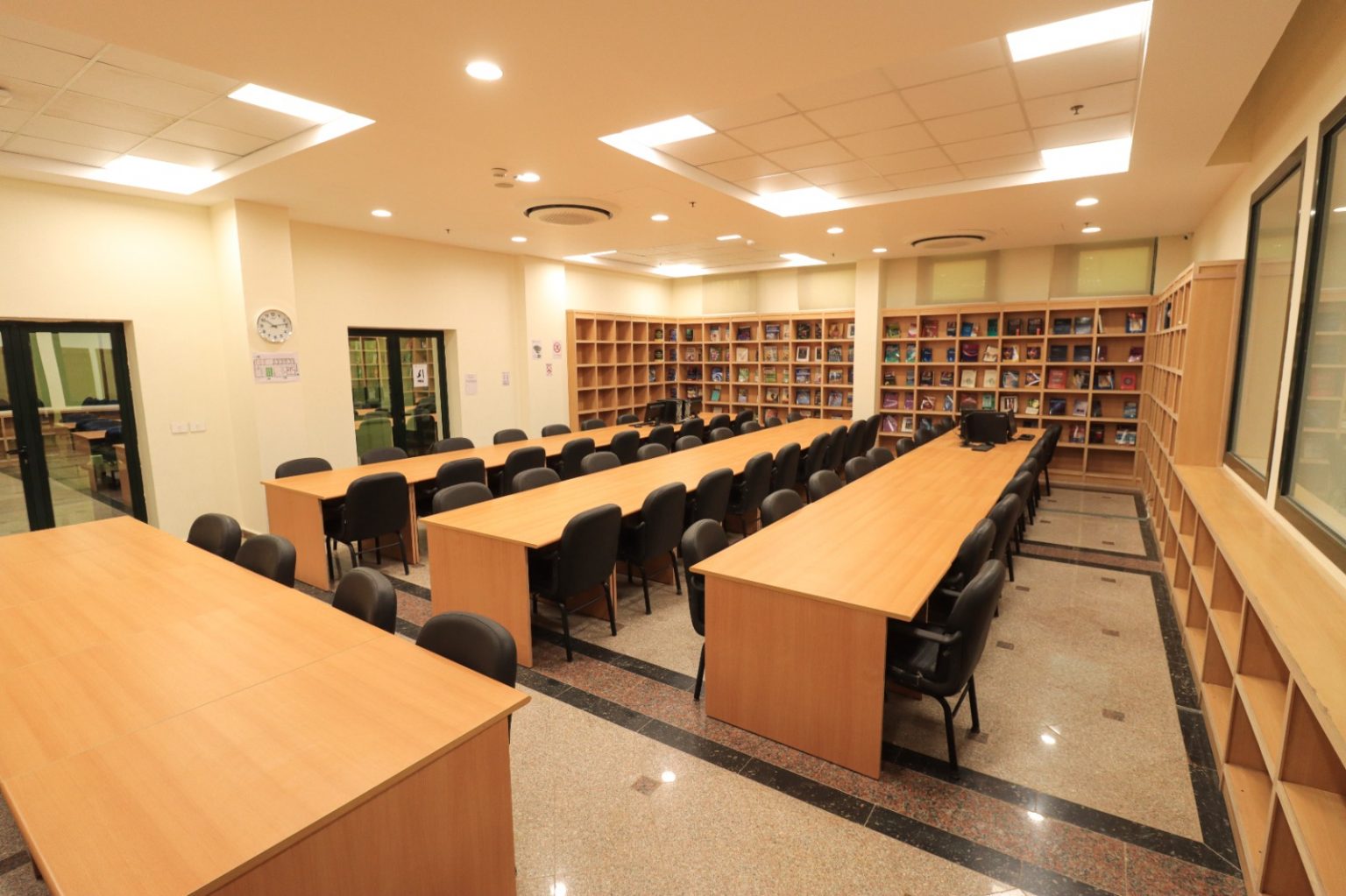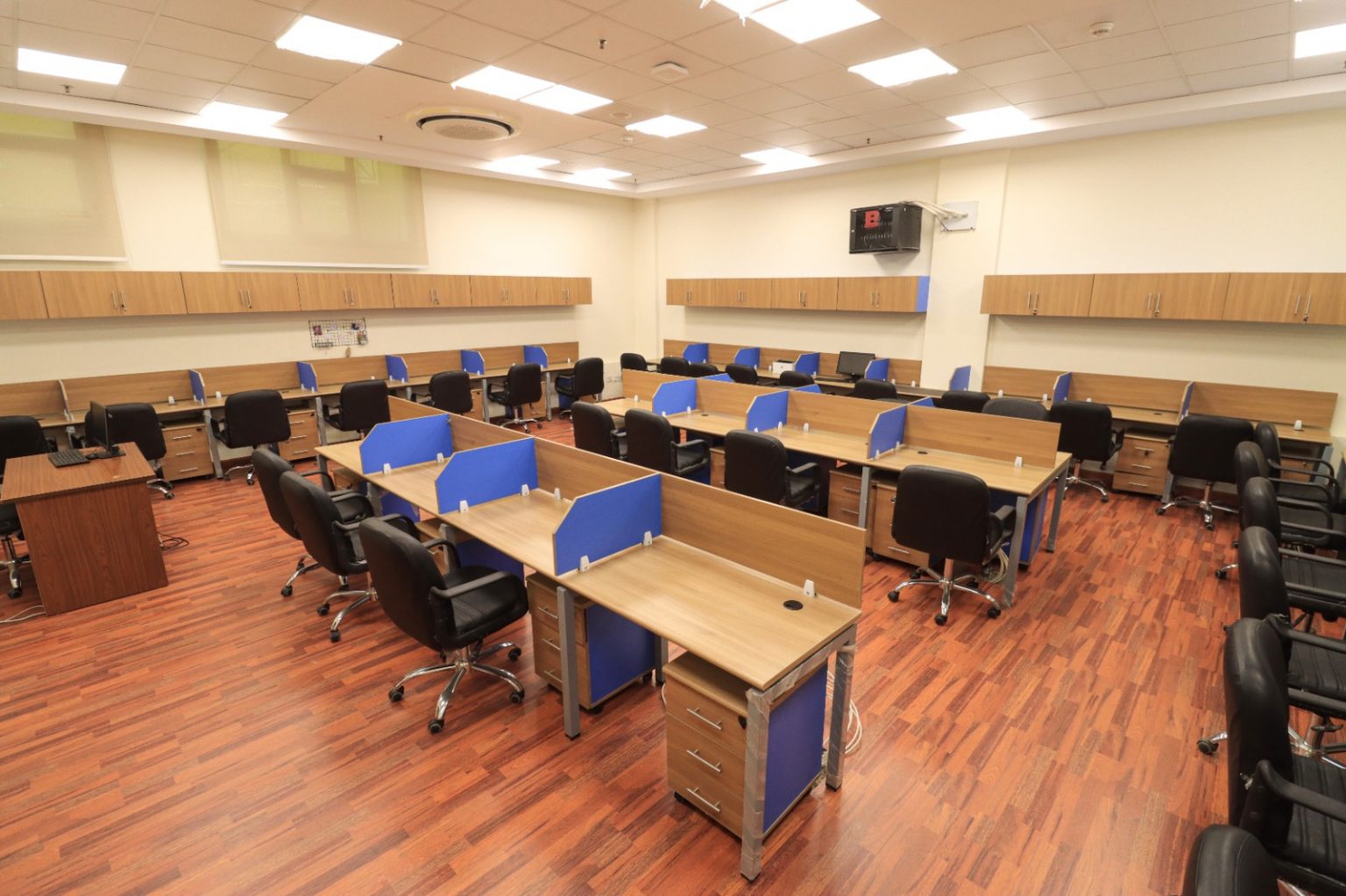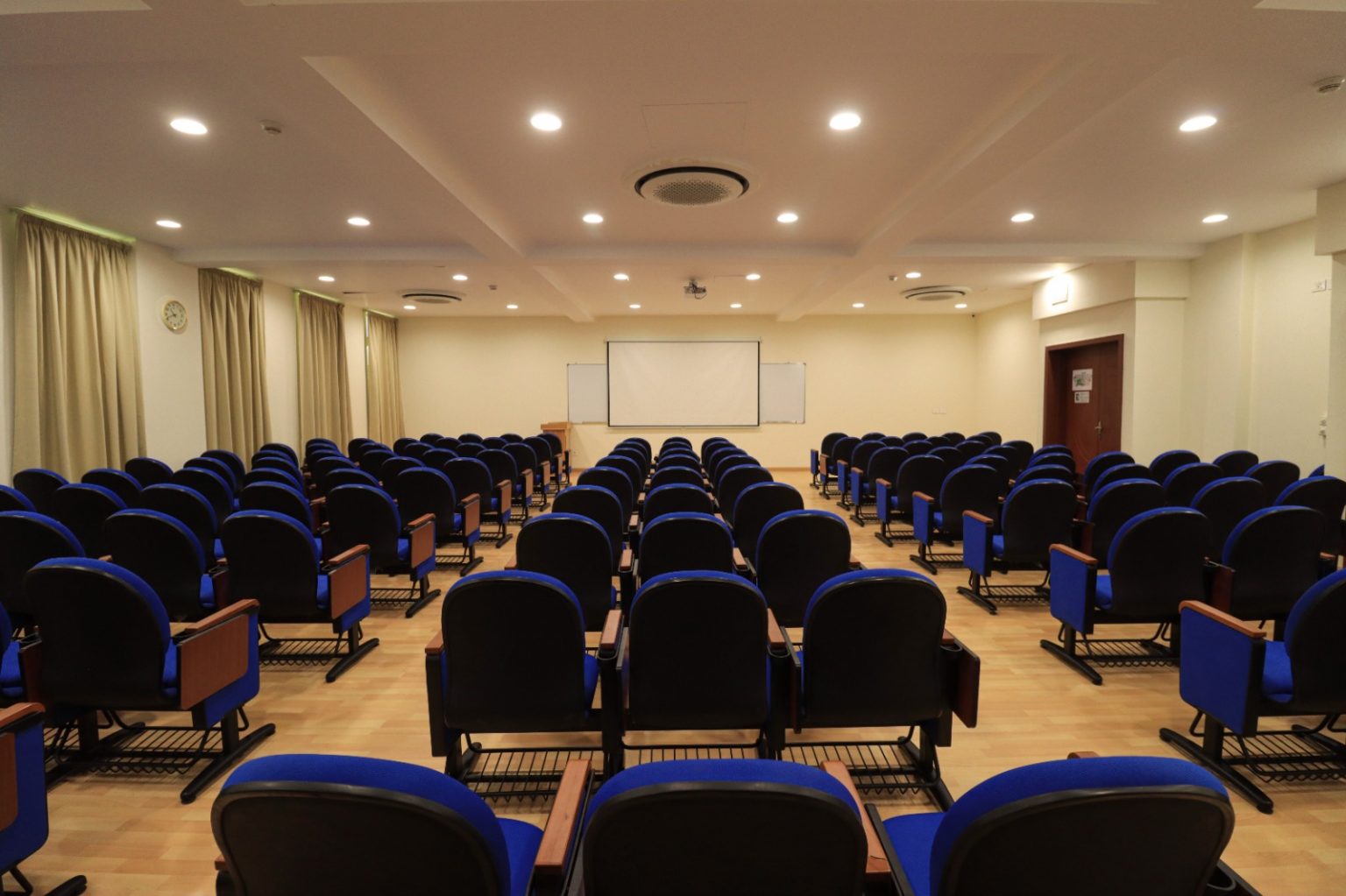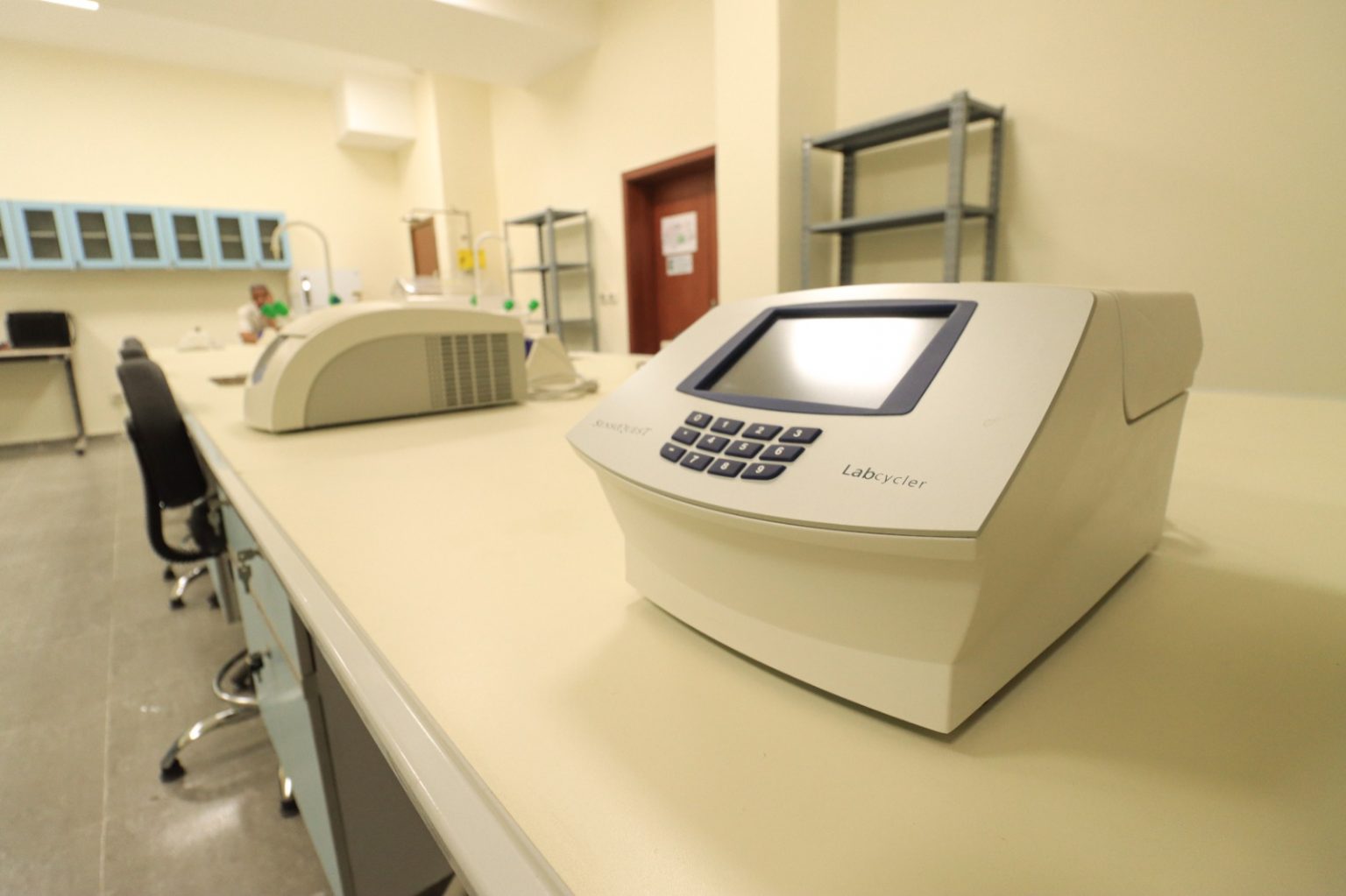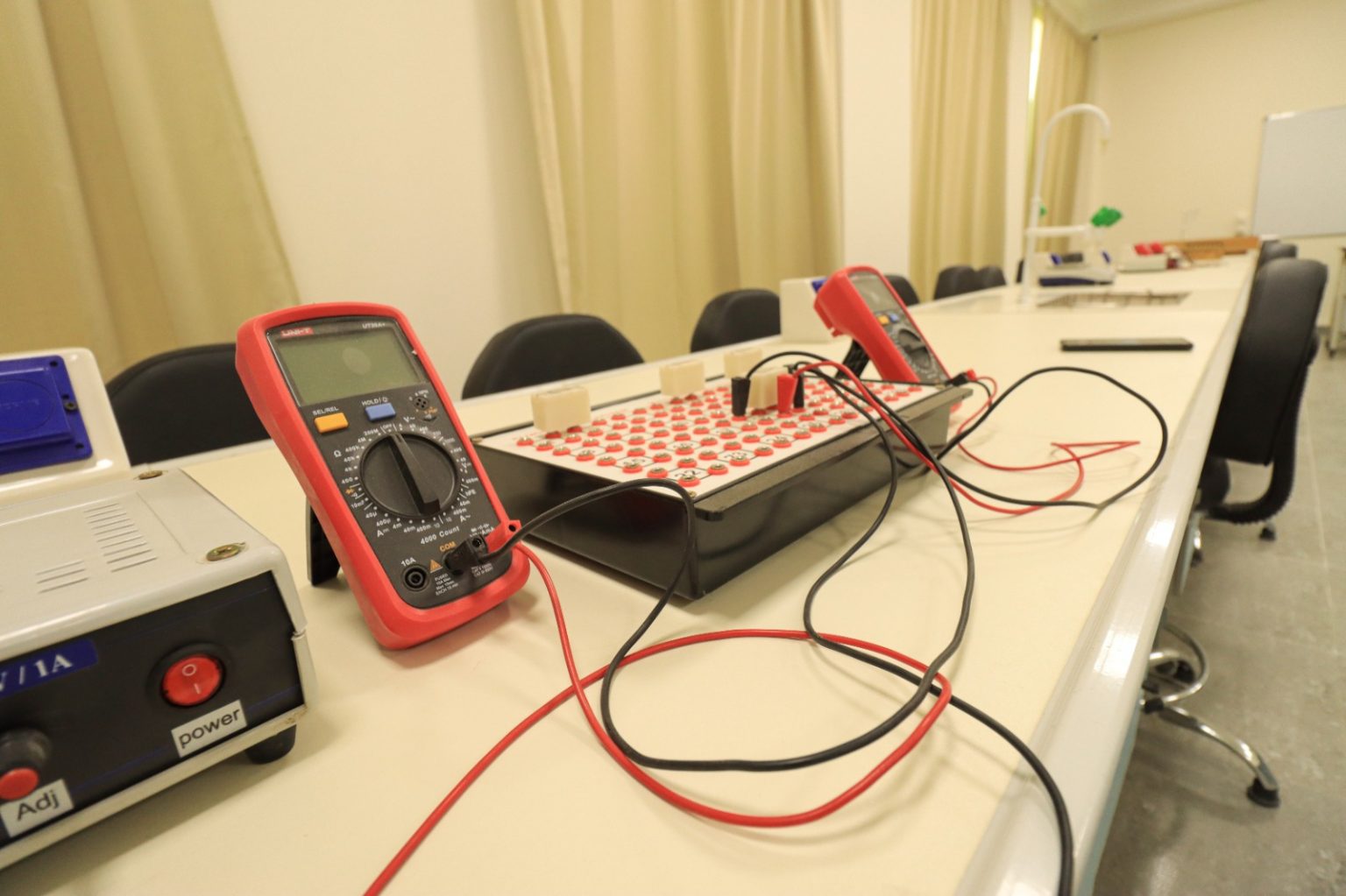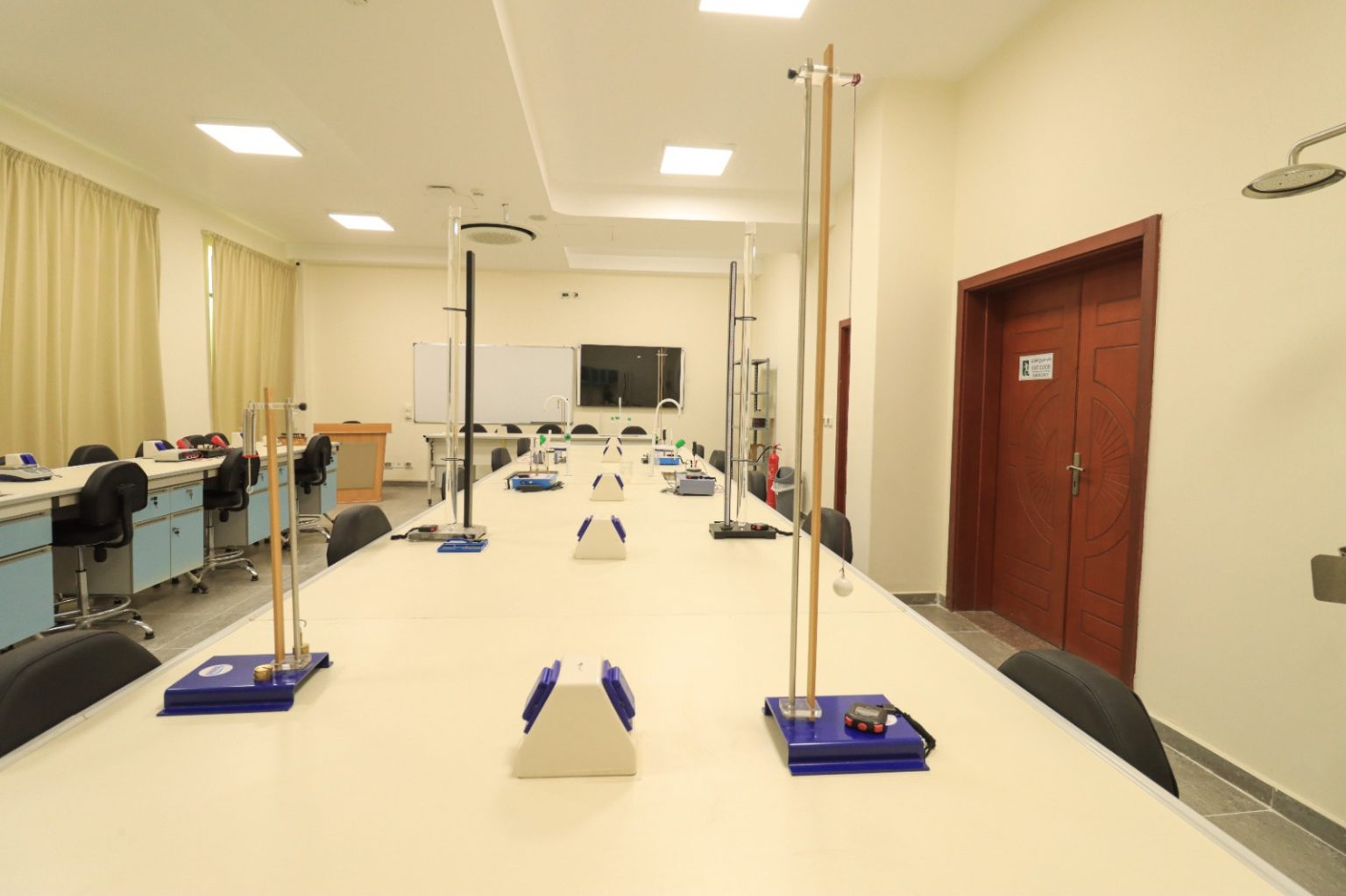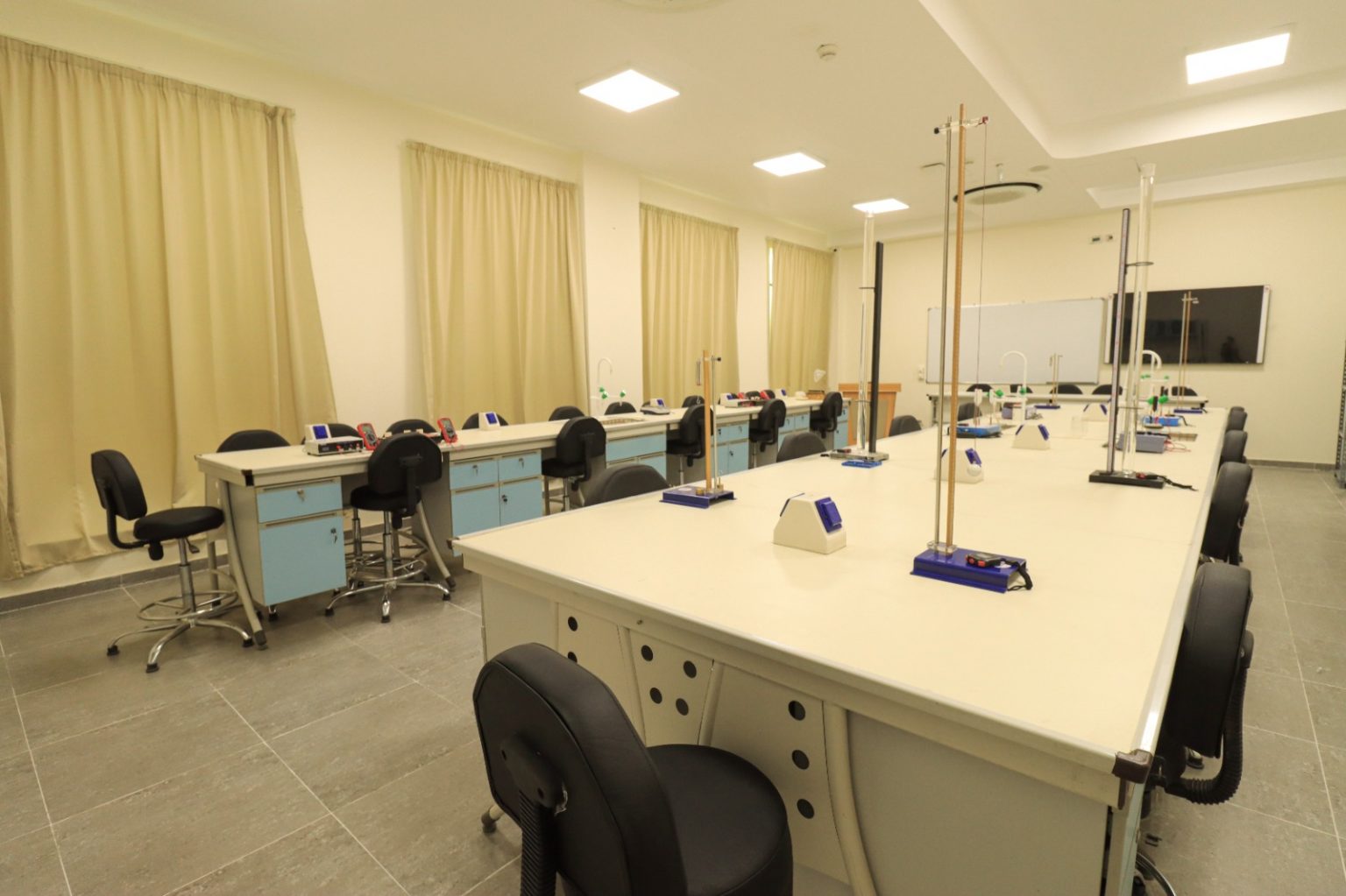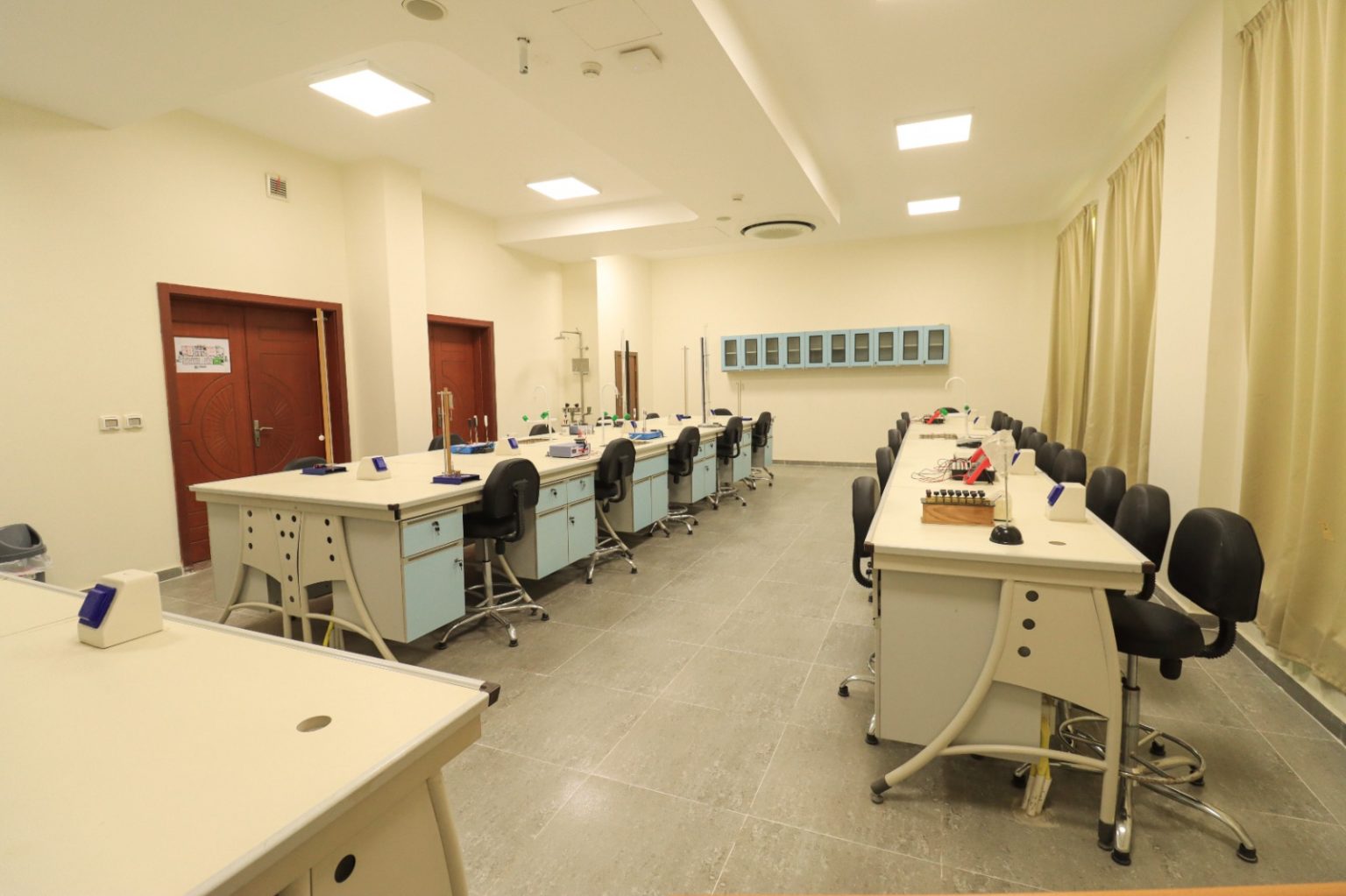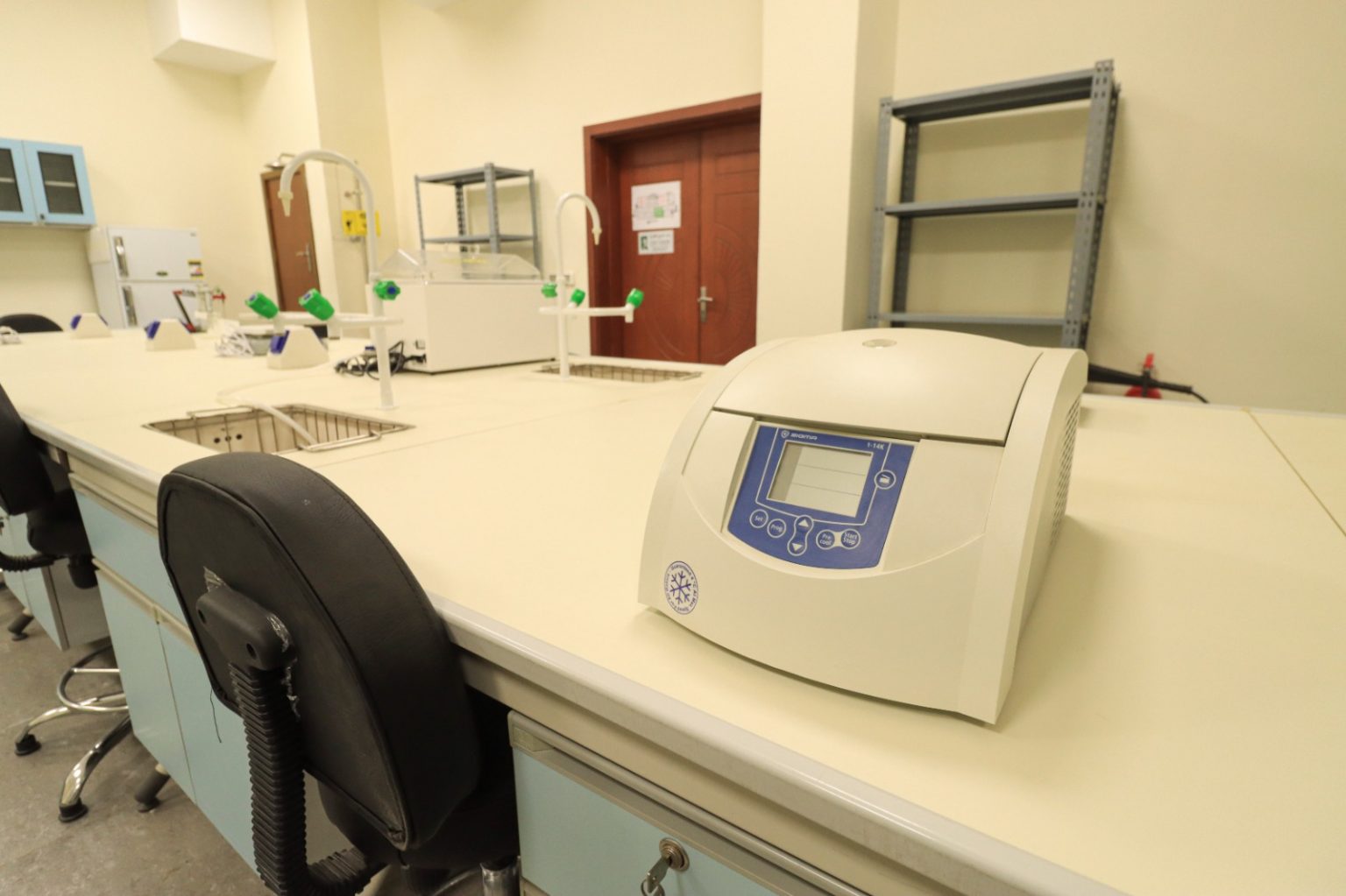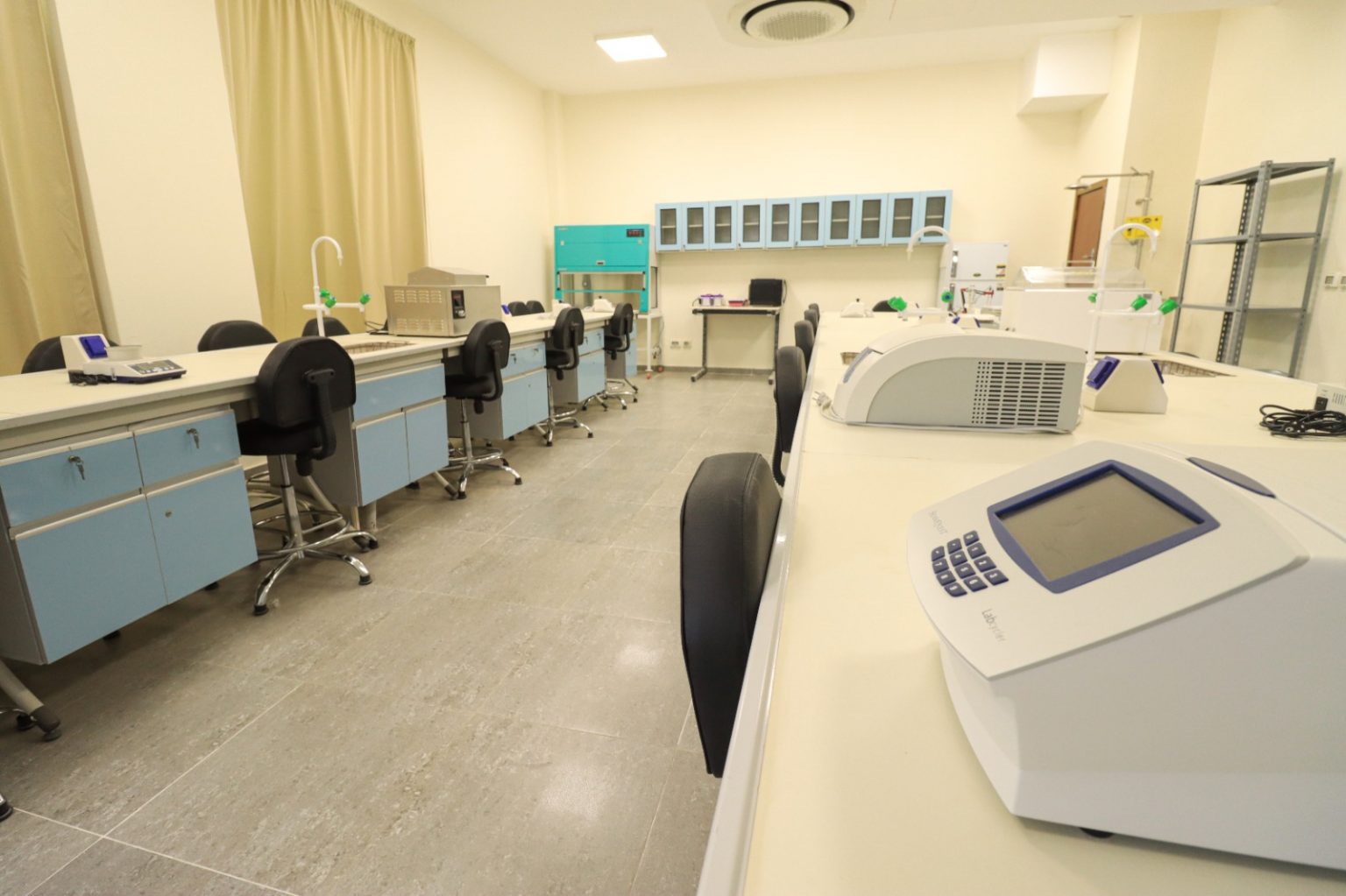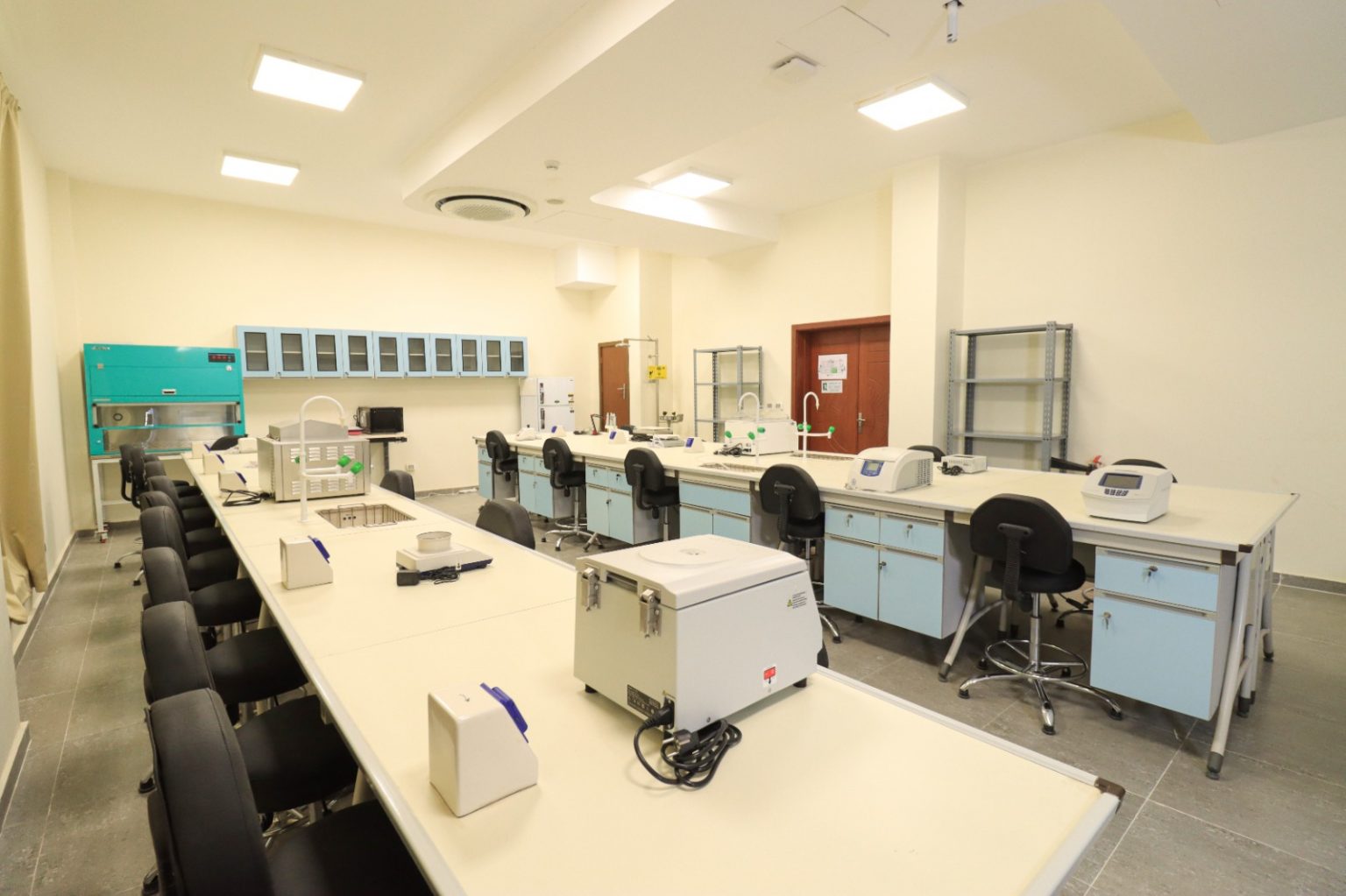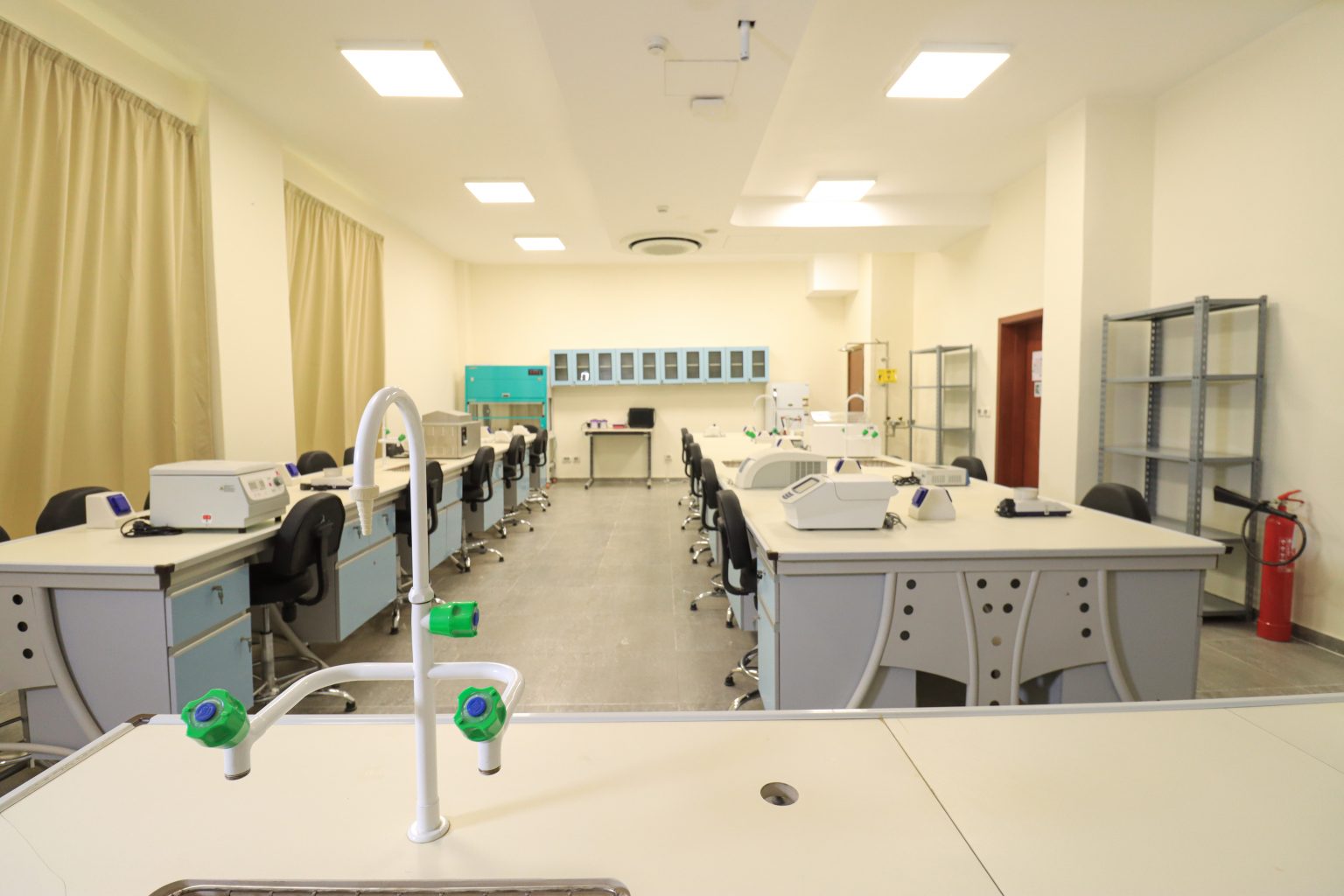Nutrition & Food Technology
Nutrition and Food Technology faculty at October University for Modern Sciences and Arts (MSA) is equipped with state-of-the-art laboratories that play a vital role in delivering a hands-on, practical learning experience to students across all programs. These specialized labs include fully equipped biochemistry, microbiology, food analysis, and clinical nutrition laboratories, as well as food preparation and sensory evaluation labs, allowing students to gain real-world skills that complement theoretical knowledge.
The laboratories are designed to meet both national and international quality standards, ensuring that students are exposed to modern tools, techniques, and equipment aligned with global best practices. Through guided lab sessions and supervised experiments, students develop essential competencies in food testing, quality control, nutritional assessment, microbial analysis, and research methodologies.
These facilities serve as a cornerstone in bridging the gap between academic knowledge and practical application, empowering students to conduct scientific experiments, research projects, and case studies that reflect real-life challenges in the fields of nutrition and food technology. Moreover, the labs support the faculty’s mission of fostering innovation, scientific inquiry, and evidence-based learning to prepare graduates for careers in research institutions, clinical nutrition, food industry, and public health sectors.
Statistics:
- 16 different lab equipped with the most advanced and recent equipments.
- 12 Lecture Halls
- 1 Linguistic Lab
- 1 Computer Lab
- Central Research Lab
Labs Description:
- General Chemistry Lab
The General Chemistry Lab provides students with foundational knowledge of chemical principles through hands-on experiments. It helps learners understand the chemical composition and behavior of food and nutrients, preparing them for more advanced applications in food analysis and nutritional biochemistry.
- General Physics Lab
In the General Physics Lab, students explore basic physical concepts such as heat, light, pressure, and mechanics. These principles are essential for understanding equipment operation, food preservation techniques, and the physical changes food undergoes during processing and storage.
- General Biology Lab
This lab introduces students to essential biological concepts and techniques, including cell structure, microscopy, and basic microbiology. It lays the groundwork for understanding how biological systems influence human nutrition and the microbiological safety of food.
- Computer Lab
Equipped with modern software and tools, the Computer Lab allows students to analyze nutritional data, simulate biological processes, and conduct statistical evaluations. It supports digital learning and research in both food technology and nutritional science.
- Advanced Microbiology Lab
In this specialized lab, students study microorganisms relevant to food safety, fermentation, and spoilage. They learn techniques such as microbial culturing, identification, and testing—critical skills for ensuring food quality and public health.
- Advanced Molecular Biology Lab
This lab focuses on cutting-edge molecular techniques, including DNA extraction, PCR, and genetic analysis. It enables students to explore how genes influence nutrition, metabolism, and foodborne pathogens, bridging the gap between molecular biology and nutritional science.
- Nutrition Lab
The Nutrition Lab is designed for dietary analysis, meal planning, and the evaluation of nutrient content in various foods. Students use advanced tools to study the relationship between diet, health, and disease, helping them become skilled nutrition professionals.
- Food Processing Lab
This lab provides practical training in food manufacturing, preservation, and quality control. Students gain hands-on experience with food processing equipment and techniques, essential for developing safe, nutritious, and innovative food products.
- Linguistic Lab
The Linguistic Lab supports students in developing strong communication skills, with a focus on scientific and professional language used in nutrition and food technology. Through interactive tools and language software, students improve their proficiency in English, enhancing their ability to engage with global research, write scientific reports, and communicate effectively in healthcare and industry settings.
- Central Research Lab
The Central Research Lab is a state-of-the-art facility designed to support advanced scientific research in nutrition and food technology. Equipped with a fermenter, autoclave, and a wide range of analytical and biotechnological instruments, this lab enables students and researchers to conduct innovative experiments in areas such as food microbiology, fermentation technology, and product development. It serves as a hub for interdisciplinary research, fostering creativity, precision, and real-world problem solving.

